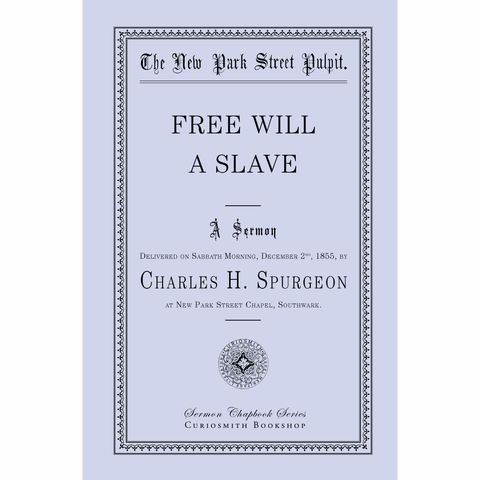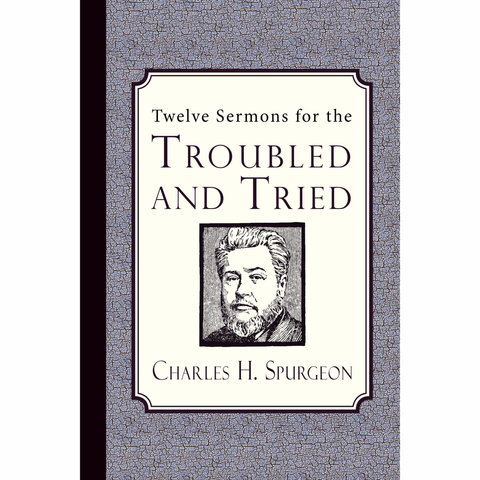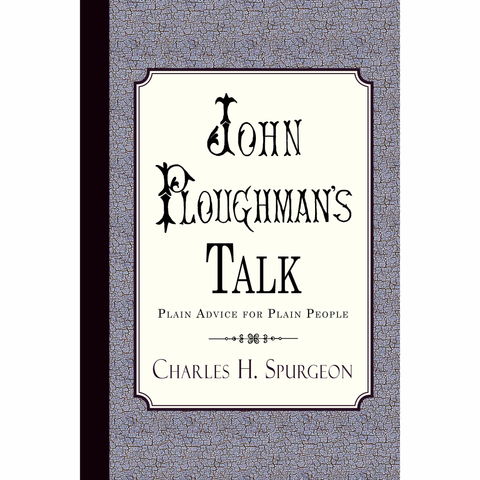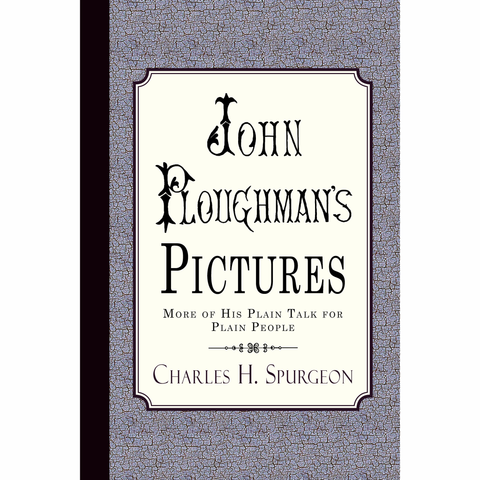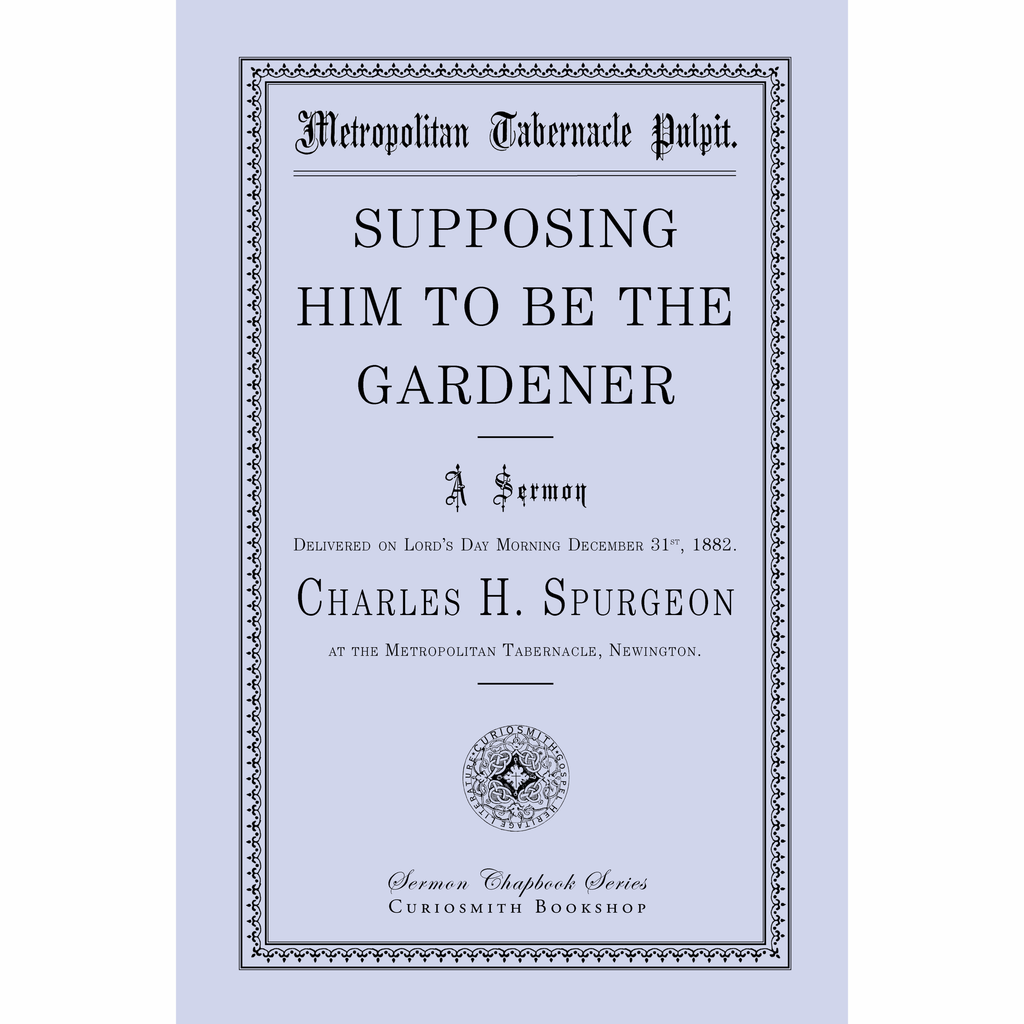
Supposing Him to Be the Gardener by Charles Spurgeon
This sermon grew out of John 20:15: "Supposing him to be the gardener." Spurgeon used an extensive well-tended garden as a setting for this discourse, probably Dr. Bennet's large garden in Mentone, which Spurgeon frequently visited. When Jesus Christ is the gardener of creation it leads to many inferences: it spurs people to their duties, it relieves people from responsibilities they should never assume, it delivers people from fears, it is a warning for the careless, it is a calming influence to those who complain and lastly it is an outlook full of hope. Spurgeon said he is "hoping that I may open many roads of meditation for your hearts . . . to indicate in which direction you may look for a vein of precious ore." The text was updated to modern language.
Paperback 5.25X8, 38 pages. ISBN 9781941281161
Charles Haddon Spurgeon (1834–1892) was born in Kelvedon, England. He came from a strong Christian family and Charles developed a love for reading books. At fifteen, a stormy day changed his plans and he went to a Methodist chapel in Colchester, where the service was almost given up for low attendance. At this service the message was look to Jesus to be saved, and he became a Christian. He never went to college, but he became a scholar through self-study. His parents were Congregationalists but he saw the need for Baptism after he read the Bible. He preached his first sermon at Teversham in Cambridgeshire and people began to respect him. The New Park Street Chapel in London was deserted and the young man from Cambridge was recommended. Spurgeon thought it a mistake and that he would not be fit for London. He was "borne down with a sense of weakness." His preaching was blessed with great success of effect and attendance. Soon the need of a much larger building was needed and the Metropolitan Tabernacle was built in 1861. He became a well-known preacher and is regarded as the "Prince of Preachers."

